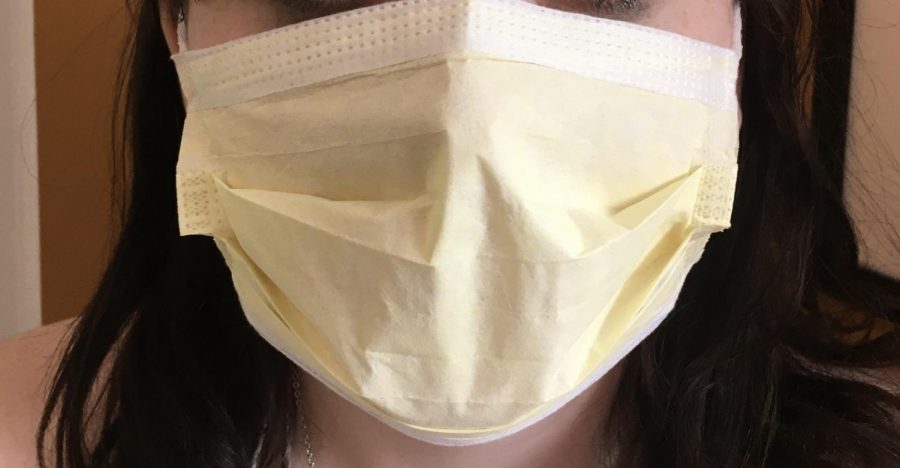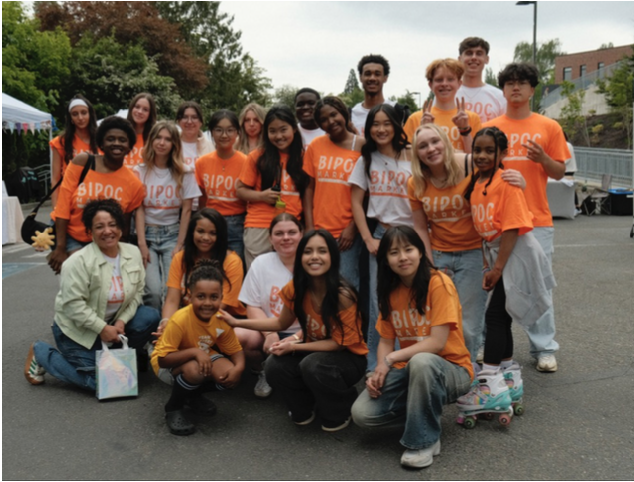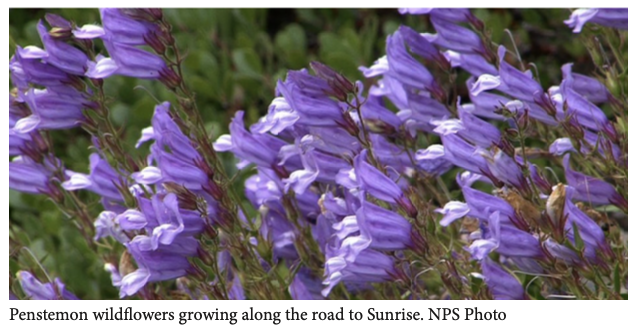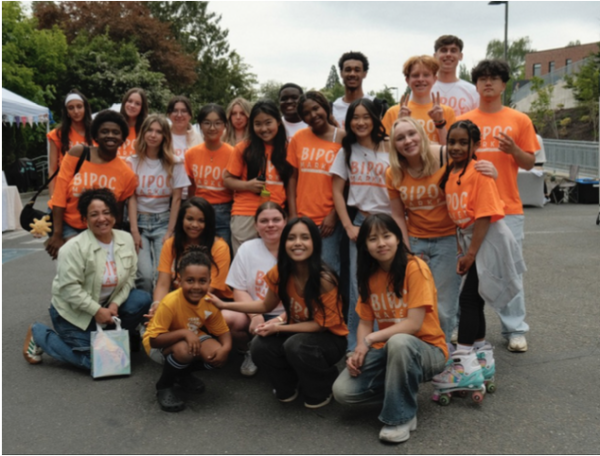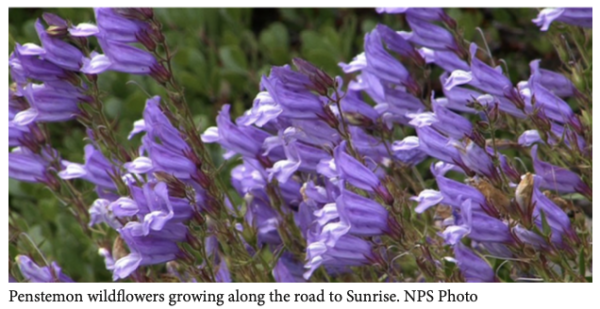Coronavirus Impacts Annie Wright Community
photo courtesy of Sofia Guerra
The wearing of masks was one issue that highlighted coronavirus concerns.
February 28, 2020
Annie Wright Schools are impacted in numerous ways by the implications of the COVID-19 coronavirus. With 113 Upper School students living in the dorms, several of whom are international students from mainland China, the school is taking numerous precautionary measures, some of them controversial, to prioritize the community’s health and safety.
The highly infectious coronavirus originated in Wuhan Province, China in early 2020. Since then, the coronavirus has been declared a global emergency by the World Health Organization, inciting concern internationally. As of today, there are 84,174 people infected, concentrated mostly in China with 78,832 people infected.
Quarantine policies
Currently, Annie Wright Schools will quarantine any community member who travels to a high risk area, for 14 days. Christian Sullivan, Annie Wright Head of Schools, also requests that people wishing to remain on campus do not come in close contact with anyone who traveled to a high risk area. “With students and adults living in such close proximity on the campus, we are unusually vulnerable to the spread of viruses in general, and safety is of course our priority,” he said in a letter sent out to the community on February 26.
At the end of January, five senior Chinese students, none of whom are from Wuhan, travelled back to their hometowns in mainland China to celebrate Lunar New Year. Annie Wright Schools quarantined the five students for a week on January 23, prior to any recommendation for quarantine by the Pierce County Department of Health.
The five students, who currently dorm at the school, expressed disappointment with the lack of organization and financial support during this period. Helen Wei, one of the five students, said “Even though this experience, particularly how the school decided to handle this problem, rendered us disappointed, we were glad that us being quarantined for a week was able to alleviate potential fear and panic in the community.”
In light of this statement and students’ frustration, Sullivan expressed regret to the affected students and reimbursed them for their expenses during their time in quarantine.
On February 12, a number of students traveled to Tokyo, Japan, as a part of the art after-school activity. At the time of the students’ return on February 18, Japan had 69 infected patients and one death. The returning students and teachers were not quarantined.
In a letter sent out to the community on February 18, Sullivan explained his decision. “This is in line with the State Department advice on travel to Japan which remains at the lowest level… Japan has the second most cases of coronavirus world-wide [at the time], but the scale of the situation in Japan is very small compared to the situation in Hubei province, and China in general,” he said.
Wei expressed frustration with this administrative decision and noted the difference in how students traveling from China and Japan were handled. In a letter sent out to the community on February 26, Sullivan acknowledged Wei’s frustrations. “I believe that these decisions were correct, but I acknowledge that it was very difficult for those five students, and I sincerely wish that I had a better solution for quarantining them away from campus,” he said.
Awareness and impacts on community
Several international students impacted by the epidemic said that they hope for the rest of the community to become better informed on the coronavirus. “I feel like people really need to get educated on the issue, how it spreads and some protective measures that people can take,” Wei said. She highlighted the importance of empathy in challenging times.
In mid February, around the time students and faculties traveled back from Japan, the community observed a significant number of Chinese students wearing germ protective masks.
According to Wei, a faculty member asked a number of Chinese students to take off their masks. “Some Chinese students who wear masks to protect themselves from the virus were asked by a particular faculty member to take off their masks, claiming that wearing masks creates fear in the community,” she said.
Multiple students clarified that they were wearing masks due to personal and familial concern about health. “First of all my parents asked me to do so…wearing a mask can protect yourself and others from getting ill,” senior Maisy Yang said.
The alarm raised about mask-wearing at school was attributed to the cultural differences between Asia and the United States. In Asia, it is normal to wear masks during flu season, while this practice is hardly observed in the United States. In response to this faculty behavior, conversations about intercultural understanding within Annie Wright Schools arose. “There should be more compassion in trying to listen to other cultures and trying to learn about the fact and the issues instead of being enclosed in insights of their own,” senior Tiffany Wang said.
“They were treated differently. That is true. That doesn’t mean there’s no intercultural understanding,” said Sullivan in an interview. Referencing diversity, equity and inclusion education, he said, “You know, the training that teachers go through is profound.”
Per a student’s request, Sullivan sent a summary of the school’s diversity, equity and inclusion training to the community. In a letter sent on February 26, Sullivan clarified the policies regarding masks: “Students and adults are certainly allowed to wear face masks at school if they feel it enhances their safety,” he said.
Support during spring break
Annie Wright Schools dorms will be open without additional cost during spring break to international students who are not able to travel home. According to Sullivan, the school will be spending thousands of dollars to keep the option open for international students. Sullivan said that he encourages international students to not travel. “Just stay here,” he said. “Don’t go out of the country. Stay here. We’ll keep you safe. But if you choose to go, you have to self-quarantine.”
The dorm faculty said they are determined to make the two-week-long break a good experience for students despite the difficulty of the situation. “Generally, we’re going to treat it like a weekend,” says advisor Courtney Stowe. “We’ll offer the [activities] we know they like…they’ll get 24 hour WiFi, which they don’t normally have, and there won’t be lights out. Hopefully, we can keep their morale up.”
The school is also preparing for the possibility that international students cannot travel home for summer break.
Disrupted travel plans
Two of the Upper School’s upcoming trips were indefinitely postponed due to the outbreak. The Upper School for Boys’ trip to Italy, Germany, and Switzerland, initially planned for this spring, has been pushed back due to Italy’s recent CDC classification as a level 3 area and the potential for a rise in cases in the other countries. For similar reasons, the Upper School for Girls’ trip to London in April is also to be reorganized. “If the situation did change while the trips were in country, and the participants had to be quarantined before their return to AWS, there would be very serious organizational and academic consequences, as well as possible, albeit slim, health risks,” Sullivan said.
“I travelled to San Francisco for a German visa…it’s only valid March 16 to March 25…It’s kind of frustrating, but I know it [the postponement of the trip] is the right choice,” said junior Daniel Wang, a Chinese national who was planning to be a part of the Upper School for Boys’ trip.
Measures to prepare for long term impact
In his letter sent out on February 28, Sullivan outlined priorities on a long term plan regarding a potential health pandemic. Some of these include “enhanced and specific safety protocols in school” such as purchasing hand sanitizers and face masks, deep cleaning and training to enhance hygienic conditions. There are also preparations for online education.



